It was thanks to their denunciations that it was decided who was the "enemy of the people", who should be behind bars, and who - to lose any career chances. Citizens were to feel the breath of the Secret Cooperators constantly on their necks. But were the agents really ubiquitous?
"Secret collaborators of the UB and SB were one of the most important parts of the system of controlling society and maintaining the communist dictatorship" - admits the historian and employee of the Institute of National Remembrance, Tadeusz Ruzikowski. Indeed, denunciations from so-called "personal information sources" often resulted in arrests, broke careers, and provided the services with grounds for blackmail.
The agents' help was used especially where the Security Offices were not very extensive. For example, in post-war Krakow, as historian Wojciech Frazik writes, "thanks to the agents, the security service could even know what was happening on a social scale".
At the same time, the society, practically from the moment of the establishment of the People's Republic of Poland, realized that it was being watched. The effects of this awareness were evident at every turn. It was known that "revealing any form of opposition or contesting the systemic reality may threaten us with negative consequences," emphasizes Dr. Maciej Korkuć. Sometimes it led to the grotesque. How else to describe the situation in which girls from well-to-do military families sneak along the outskirts of the estate, hiding their Communion dresses, and only dress up in front of the church?
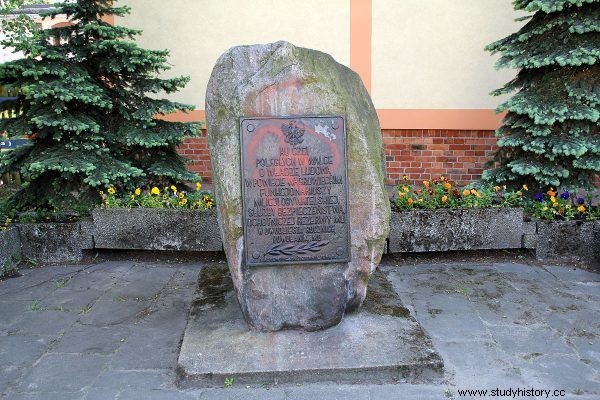
Monument to the officers of the Citizens' Militia and the Security Service in Wągrowiec who died in the fight for People's Power, dismantled in 2015.
The fear of being watched changed people's behavior. But what were the real chances that someone was watching the citizen? How many people actually collaborated with the socialist "political police":the Security Office and then, from 1956, the Security Service?
What does it mean:collaborate?
The concept of "cooperation" is obviously very broad. UB-SB had a number of categories, which included individual persons related to it. In the first post-war decade, distinguished informants , for example from agents. The former, as the name suggests, were engaged in collecting information and were selected due to their closeness to the environment in which the services are interested. Sometimes they were called up to perform a specific task. It was the most popular way of working with the UB. Agents they acted more actively in detecting and elaborating hostile environments.
Separately appointed residents , that is, politically proven collaborators who led entire groups of informants. UB-SB also had a network of operational contacts - people who did not sign a cooperation commitment and provided information orally.
The term "secret collaborator", the most recognizable today, did not appear until 1957. The first formal term for TW appeared in the 1960 manual. The case was finally put in order a decade later, which stated that:
Secret collaborators - these are people intentionally recruited to cooperate with the Security Service and performing tasks in the field of prevention, recognition and detection of hostile activity .
TW was distinguished from civic aid , and later - from business contacts and operational contacts that is, relationships that are less obliging. This was defined as the persons with whom the services cooperated on the occasion of "ensuring public order and safety" at work or for obtaining individual information.
Does this mean that everyone who was classified as a secret collaborator was committed to the people's power? Of course not, although there were also such cases. An exceptional example is the TW "Maks", which started cooperation shortly after the advent of the people's power. His files do not end until the mid-1980s. "Maks" was active, especially after the emergence of open opposition in the 1970s and early 1980s. against each other.
Moreover, “Maks”, with the knowledge and consent of the SB, created ... his own small opposition group, thanks to which he was able to consolidate his image as an anti-regime activist. He also did not cease his activity during the martial law - he asked himself to be interned thanks to which he collected information valuable for the SB from other detainees.
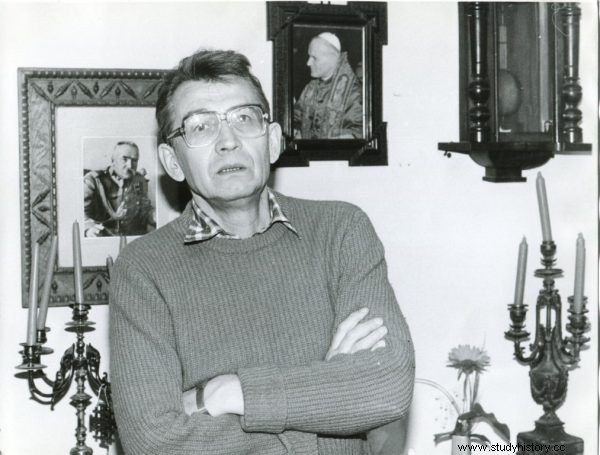
TW "Maks" tried to disrupt the KOR and ROPCiO circles at all costs. In the photo, Leszek Moczulski, a co-founder of ROPCiO and a participant in talks with KOR members regarding the creation of a joint operating platform. Photograph taken at the end of the 1970s.
Apart from the likes of "Maks", whom the historian Andrzej Friszke describes as particularly active agents but there were also "hurdles". These TWs signed a pledge to cooperate under the influence of fear or blackmail, and then tried to break contact as quickly as possible. As Friszke writes:
For many people unexpectedly caught in the net, detained red-handed, then appropriately blackmailed by an officer, a declaration of cooperation was a ticket to freedom. And a breath that made it possible to reflect on the consequences of the declaration made.
During Stalin's darkest night, "Modrzewski" reported a few days later and rescinded his undertaking to cooperate. With full awareness that the consequence will be imprisonment and sentence, which has also been done. Others tried to avoid contact, meetings, go to another city, consider the thing as non-existent . This was done, for example, by D., who, arrested in 1946, signed a pledge but did not really cooperate.
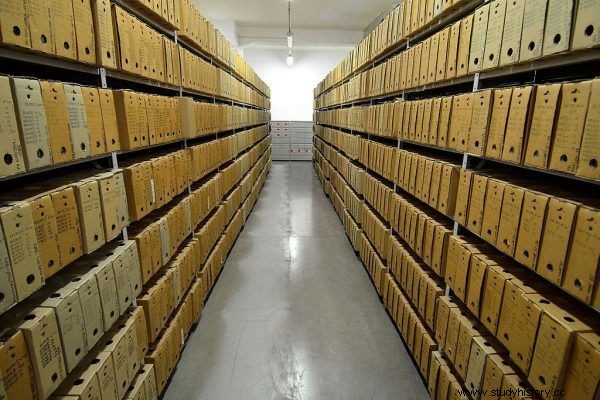
The Security Service collected data not only on the people observed, but also records of secret collaborators. Although selected parts of the files were destroyed during political changes, the remnants of the former SB are still impressive.
Thousands of agents…
The number of people cooperating with the UB-SB, which we know thanks to the statistics kept by the offices themselves, has changed significantly over the years. As Ruzikowski lists, the foundations for an espionage network were laid in the years 1944-1949. over 50,000 people were recruited at that time (this number includes informants, agents and residents). In the following years, the network grew steadily, in 1953 reaching a record number of 85,333 people.
In the following years, however, the security services recorded a significant decrease in the willingness to cooperate. Until the end of the 1950s, collaborators resigned en masse, to the extent that in 1960 only 8720 remained of those active. It was not until the second half of the 1960s that the SB began to rebuild its contacts. This process sped up when an organized opposition appeared, primarily KOR.
Since 1981, associates have increased at a rate of nearly 30 percent per year. Interestingly, it was during this period - in the last decade of the Polish People's Republic - that the number of collaborators peaked. It could go up to 100,000 . Such a policy was promoted by the Minister of the Interior, General Czesław Kiszczak.
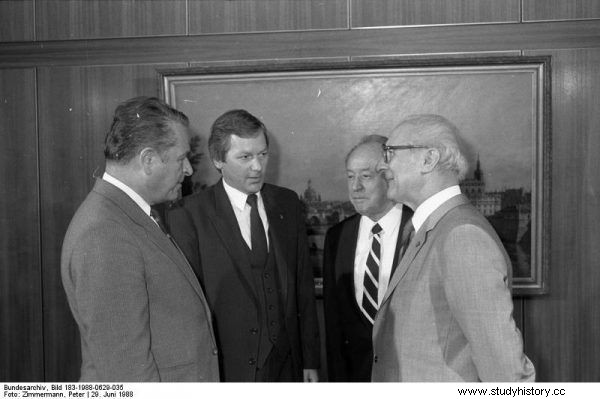
Czesław Kiszczak promoted the policy of increasing the number of SB collaborators. In the photo Kiszczak during talks with East German politicians in 1988 in Berlin.
The number of associates significantly exceeded the number of operational employees employed in the SB in the 1980s. The greatest "occupancy" in 1984 was in ... Zamość, where there were as many as 13.2 secret collaborators per one ESBK . The situation in Chełm was also not a good one, where one SB employee managed an average of 9.4 TW. Against this background, Kraków comes out more modestly, out of 6.1 secret collaborators, working full-time in the office.
The most cheerful hut?
Although initially the numbers of TW in Poland may be frightening, a glance at the situation in other countries of the Eastern bloc is enough to see that perhaps it was not so bad at all. In the GDR, the number of collaborators of the secret services had already exceeded 100,000 in the mid-1960s and was constantly growing. In 1989, it amounted to 174,000! In the same 1960s, when the spying network was only being rebuilt in Poland, over 100,000 TW operated in Romania. Back then, Bulgaria had around 60,000 and Czechoslovakia 40,000.
Before becoming overly enthusiastic, however, one must remember that the statistics for Poland may be (and significantly) underestimated. First of all, Polish statistics do not include intelligence, military agents and agents of auxiliary divisions and only an agency of national operating divisions. Other countries' data includes these categories.
However, if we assume that the number of TW in Poland was slightly lower than elsewhere, how can this be explained? Filip Musiał from the Institute of National Remembrance claims that the Security Service at some point decided to develop a wiretapping network and invested in this type of surveillance. In turn, Janusz Kurtyka suggested that perhaps the secret services focused on the elite and their formation. Since their focus was on a relatively limited group, no large agent network was needed.
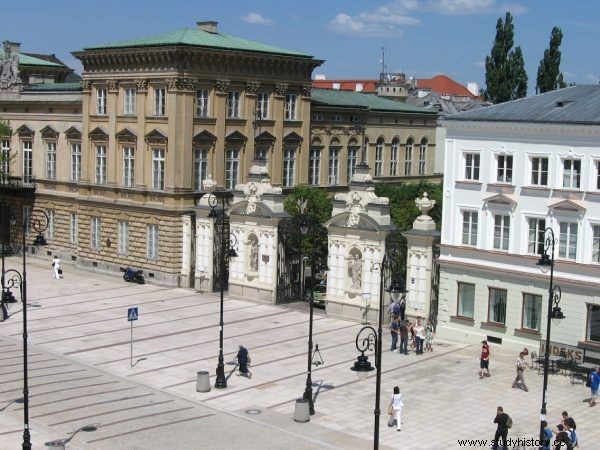
The Security Service, especially educated people, were under surveillance. She was also interested in student circles, which - as in 1968 - were the birthplace of opposition groups. The photo shows the gate of the University of Warsaw.
Wojciech Frazik speaks in a similar vein, pointing to the overrepresentation of some groups among SB collaborators:
The disproportions between the size of certain social groups and the percentage of these groups in the agency are huge. The number of agents with higher education is several dozen percent, about 40-50, while the number of people with higher education at that time is 4%. This is what shows the methods of the security service. Perhaps the model was actually selected in such a way that it was recruited in the most important groups from the point of view of the system.
"Normal" cooperation
Regardless of how the size of the spying network in Poland is assessed, the problem of cooperation concerns a large group of people. Those whose past activities have come to light make excuses in various ways. Some say that contacts with the SB were inevitable. Others downplay the fact that they signed the pledge, stressing that the information they provided was not harmful. This is how General Zbigniew Scibor-Rylski - the oldest surviving soldier of the Warsaw Uprising, defended himself in an interview with the portal "TwójHistoria.pl".
However, not everyone agrees with a similar “normalization” of the fact of agreeing to cooperate with the security services. People accused of cooperation are also stigmatized, which is well reflected in the new novel by Mirosława Kareta entitled "Folder". Its hero, Maksymilian Petrycy, tried to clear his father's name from the accusation of cooperation.
It can be said that at least part of the society adopts the view presented by Filip Musiał from the Institute of National Remembrance:
Cooperation with the communist security services was not normal , and the security service itself represented a totalitarian regime that pursued the interests of the Kremlin, not of Poland. The offer of cooperation was not made to everyone, and if it was submitted, it could be rejected - without suffering any consequences .
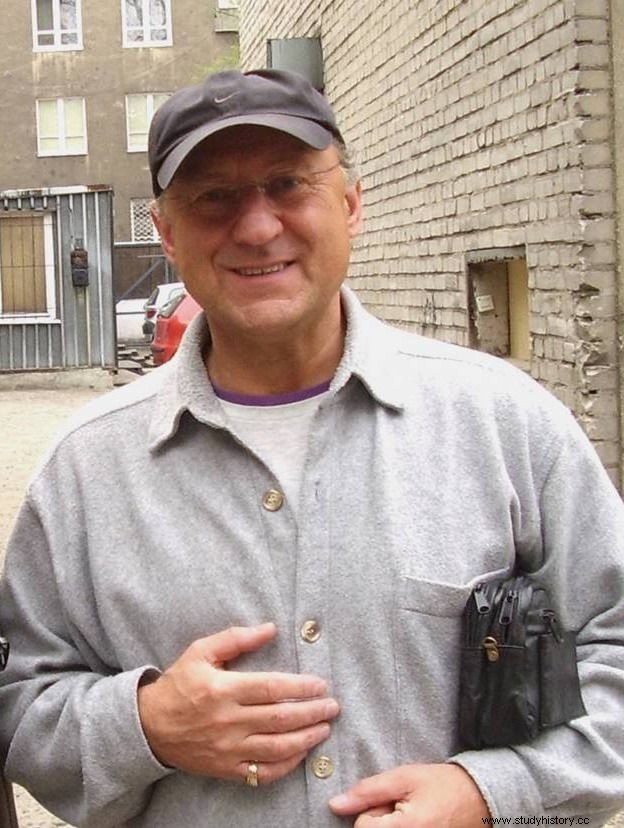
One of the people who could not be recruited was the actor Piotr Fronczewski. Photo from 2007.
The historian gives the example of Piotr Fronczewski, who firmly rejected the attempts of blackmail by the security officer who tried to recruit him. But even he admits that there have been harassments. The fear of them was certainly high throughout the entire period of the Polish People's Republic. So, is it possible to blame those who did not refuse? "No one should be sure that in a situation of arrest, fear, isolation, prison prospect, he would be impeccable if he did not experience it personally" - emphasizes Andrzej Friszke. And Wojciech Frazik adds:"There were different motives behind each case of cooperation, and the atmosphere in which the recruitment took place was also different." How "easy" it was to refuse, let him testify to something else most emphatically:
Anyone examining these archives will confirm that there are no documents in them in which the security services would raise the problem of some mass denials of recruitment. There is no such thing. Most of the documents go in such a direction that the planned recruitments were successful. Not 100% of course, but there are simply no statistics that would show that many more refused to recruit than planned for recruitment.
